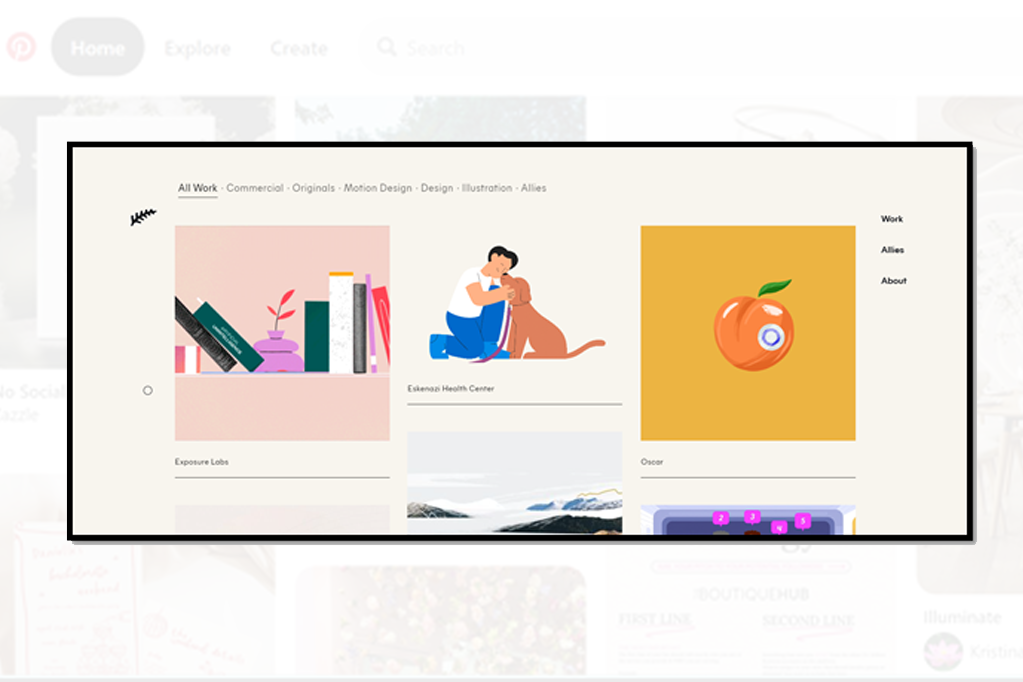Crafting Digital Calm: How Web Design Channels the ASMR Experience
Author : admin
May 16, 2024
Introduction
In the vast expanse of the Internet, websites are not merely digital spaces; they are canvases that have the power to immerse users in unique and meaningful ways. Beyond aesthetics and functionality, some websites have the ability to induce a tingling sensation known as ASMR (Autonomous Sensory Meridian Response). This exploration delves into the art of web design, unraveling how a well-crafted website can elicit an ASMR-like experience, making your online journey not just informative but also remarkably soothing.
Visual Harmony
A silent language, aesthetics, plays a crucial role in establishing a serene online environment. Websites employing harmonious color palettes, balanced layouts, and pleasing typography can evoke a sense of visual calmness. Soft tones, gentle gradients, and clean designs align with ASMR principles. Dive into websites with tranquil color schemes and organized layouts for a calming experience.
Example: [Spotify Design] www.spotify.design.com

Bright colors, drop shadows, and smooth animations add character and depth to this website. Flat geometric patterns with abstract accents make the artist practically jump off the screen.
Intuitive Navigation
Much like ASMR relies on subtle sounds, seamless navigation is essential for stress-free web browsing. Clear menus and logical organization match the soothing nature of ASMR. Explore websites with user-friendly interfaces and menus that intuitively guide you through the content.
Example: Dropbox – www.dropbox.com

Dropbox exemplifies intuitive navigation with a clean and simple interface. The menus are straightforward, allowing users to navigate effortlessly and focus on their tasks without unnecessary distractions.
Subtle Animations
Small animations and transitions contribute to the overall satisfaction of a website. Slow movements, smooth page transitions, and deliberate sounds can create a soothing digital experience akin to ASMR triggers. Look for websites with subtle animations that add a touch of elegance to your browsing.
Example:[Fern.Studio] www.fern.team.com

Stripe incorporates subtle animations and smooth transitions throughout its website. Elements respond to user interactions with graceful movements, enhancing the overall user experience and providing a sense of digital calm.
Thoughtful Audio Elements
While traditional ASMR relies heavily on auditory triggers, websites can incorporate ambient sounds or carefully selected background music. Gentle, non-intrusive audio enriches the user experience, contributing to an overall ASMR feel. Explore platforms with seamlessly integrated soft background noises and calming music for a multisensory journey.
Example: – [Noisli] www.noisli.com

Noisli, a meditation and relaxation platform, integrates soft background sounds and calming music into its website. The audio elements enhance the overall serenity, creating a digital space that resonates with ASMR-like sensations.
Engaging Imagery and Multimedia
High-quality images and multimedia content can captivate users, offering a sensory-rich experience. Videos with calming visuals or slideshows of serene landscapes evoke tranquility, enhancing ASMR-like sensations. Discover serene websites featuring captivating multimedia content.
Example: [National Geographic] www.nationalgeographic.com

National Geographic utilizes high-quality imagery and immersive multimedia content to engage users. The captivating visuals create a sensory-rich experience, making the website a digital haven that aligns with ASMR principles.
Mindful Content Presentation
Clear headings, concise paragraphs, and well-structured information contribute to a sense of order and calmness. Mindful content organization allows users to absorb information without feeling overwhelmed, creating a digital space conducive to ASMR-like sensations. Explore websites with well-presented content for an easy and enjoyable reading experience.
Example: Medium – www.medium.com

Medium excels in mindful content presentation with clear headings and concise paragraphs. The well-structured information enhances readability, creating a calm and focused environment for readers.
Personalization and Interactivity
Websites offering personalized experiences or interactive elements engage users on a deeper level. ASMR often involves personalized experiences. In web design, this translates into personalized content or features, creating a sense of being cared for and understood.
Example: – [Pinterest],www.pinterest.com

Pinterest provides a personalized experience with tailored recommendations based on user preferences. The interactive elements, such as personalized content suggestions, enhance user engagement and create a comforting digital space.
Conclusion
In the digital age, where the online experience shapes our daily lives, ASMR extends its influence beyond audio, finding a home in web
design. A carefully crafted website, with its visual harmony, intuitive navigation, and thoughtful multimedia, can transport users into a calming, ASMR-inspired digital oasis. As technology and human sensory experiences intersect, web design emerges as a potent tool for creating online spaces that not only inform but also soothe the senses. To truly grasp the essence of ASMR-inspired web design, explore websites with the characteristics outlined above and let the digital calm wash over you.





